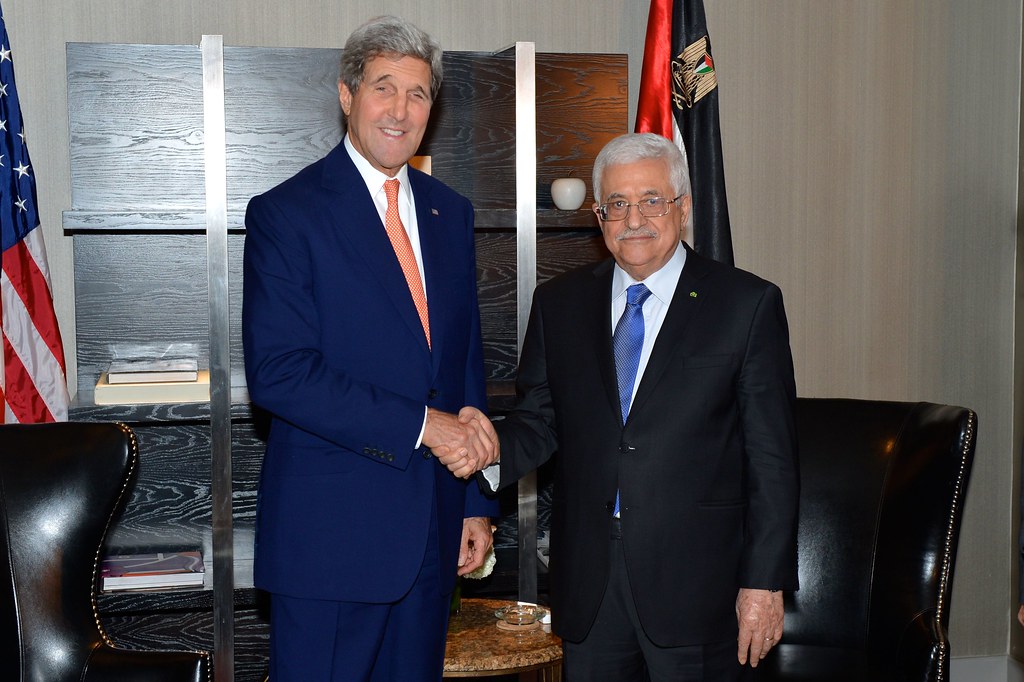
Palestinian Leader Denounces Gaza Military Actions as International Law Violations (image credits: Flickr)
The image captures a moment of diplomatic tension as Palestinian leadership addresses the international community about the ongoing crisis in Gaza. Palestinian President Mahmoud Abbas recently delivered strong remarks condemning Israeli military operations in the Gaza Strip, characterizing them as violations of international law and calling for global intervention to address what he described as systematic aggression against Palestinian civilians.
## A Diplomatic Condemnation Echoes Across International Forums
Abbas didn’t mince words during his recent address, directly challenging the international community’s response to the escalating violence in Gaza. His statement represents more than just political rhetoric—it’s a calculated diplomatic move designed to shift global opinion and potentially trigger international legal proceedings.
The Palestinian leader’s remarks come at a time when civilian casualties continue to mount in the densely populated Gaza Strip. His choice of language, specifically invoking “war crimes,” carries significant legal weight under international humanitarian law and could influence how international bodies examine the conflict.
## The Legal Framework Behind War Crime Accusations
Understanding what constitutes a war crime requires examining the Geneva Conventions and their additional protocols. These international agreements establish clear boundaries for military conduct during armed conflicts:
- Intentional targeting of civilian populations or infrastructure
- Disproportionate use of force relative to military objectives
- Collective punishment of civilian populations
- Destruction of property not justified by military necessity
- Attacks on hospitals, schools, and other protected facilities
When political leaders invoke these terms, they’re essentially calling for international legal scrutiny. The International Criminal Court and other judicial bodies use these criteria to evaluate potential violations of international humanitarian law.
## Historical Context of Gaza’s Humanitarian Crisis
Gaza’s unique geography and political status make it particularly vulnerable during military operations. The territory, home to over two million people in just 140 square miles, represents one of the world’s most densely populated areas.
The humanitarian situation has deteriorated significantly over recent years. Essential infrastructure including hospitals, water treatment facilities, and power plants has suffered extensive damage. This creates a cascading effect where civilian suffering extends far beyond immediate combat zones.
## International Response and Diplomatic Pressure
The Palestinian president’s statement reflects broader frustration with what many perceive as inadequate international intervention. Several factors influence how the global community responds to such accusations:
| Response Type | Key Players | Typical Actions |
|---|---|---|
| Diplomatic | UN Security Council | Resolutions, sanctions |
| Legal | International Criminal Court | Investigations, warrants |
| Humanitarian | Relief organizations | Aid delivery, medical support |
Each pathway presents different challenges and potential outcomes. Diplomatic efforts often face vetoes from permanent Security Council members, while legal proceedings can take years to develop meaningful consequences.
## Media Coverage and Public Opinion Dynamics
How these statements get reported and interpreted significantly impacts their effectiveness. Palestinian leadership understands that international pressure often depends on sustained media attention and public awareness.
The timing of such statements frequently coincides with international gatherings or significant news cycles. This strategic communication approach aims to maximize visibility and potentially influence policy decisions in key capitals around the world.
## Regional Implications and Broader Peace Efforts
Abbas’s statement doesn’t exist in a vacuum—it reflects deeper challenges facing Middle East peace initiatives. Regional powers, including Egypt and Jordan, often find themselves balancing diplomatic relationships while addressing humanitarian concerns.
The language used in these diplomatic exchanges can either escalate tensions or create openings for dialogue. Strong condemnations might rally international support but could also harden positions on all sides, making future negotiations more difficult.
Key Takeaways
- Legal terminology in diplomatic statements carries significant international implications
- Gaza’s humanitarian crisis continues to influence regional stability and global politics
- International response mechanisms face structural limitations despite clear legal frameworks
The Palestinian president’s strong condemnation represents another chapter in a complex diplomatic struggle that extends far beyond immediate military actions. Whether these words translate into meaningful international intervention remains the crucial question that will shape both immediate humanitarian relief efforts and long-term prospects for regional stability.
How effectively can diplomatic condemnations influence actual policy changes when backed by limited enforcement mechanisms?






